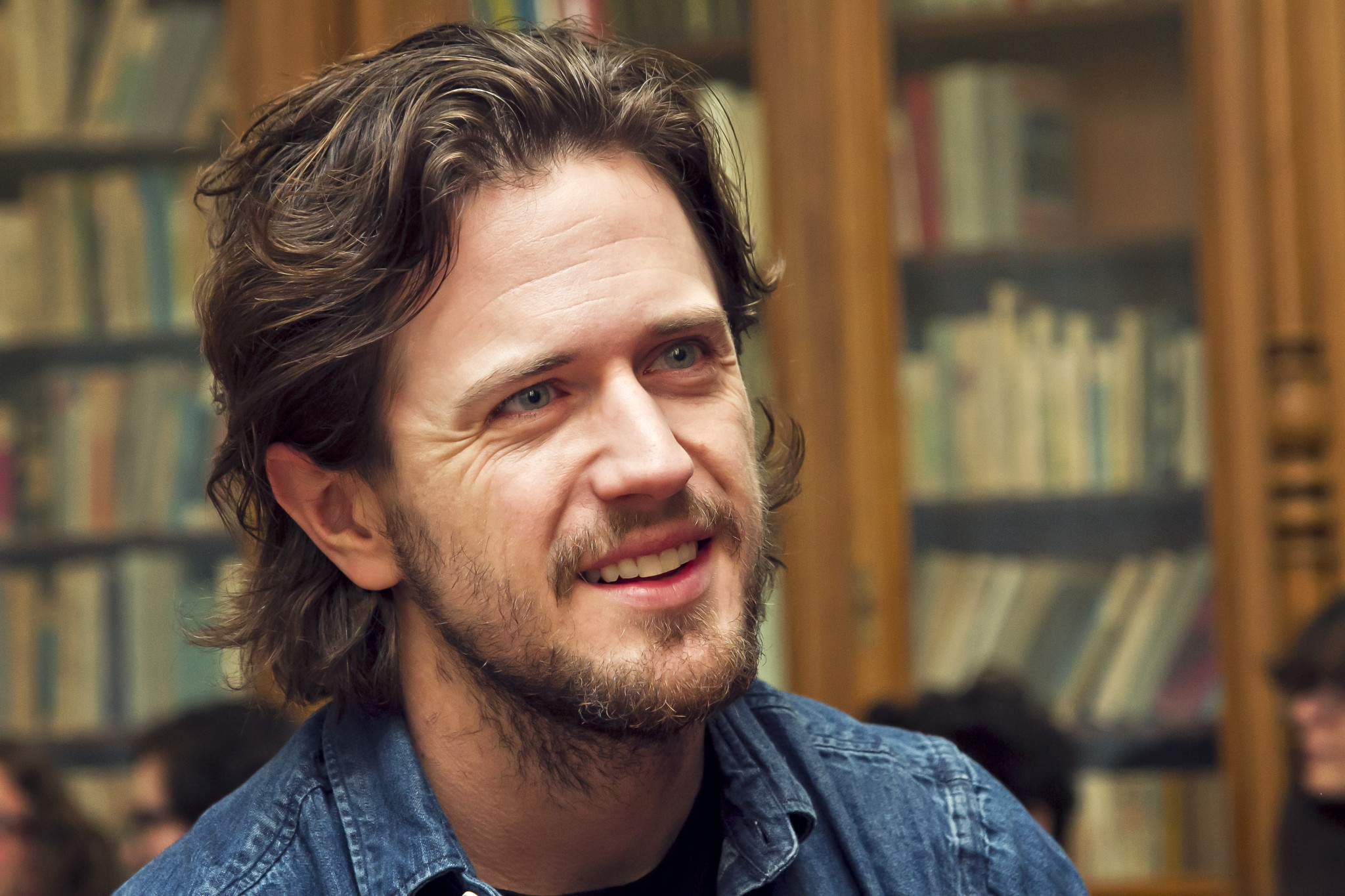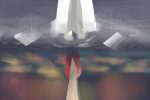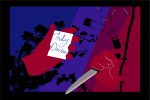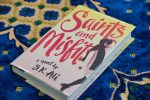In the “Red Rising” trilogy, Pierce Brown creates an alternate world on the planet Mars where a color-coded, Roman-like society unfairly rules — the enslaved, puny Reds on the bottom, the magnificent and god-like Golds on top.
Darrow, a young, grieving Red, is plucked from the mines where the rest of his color slaves away and asked to lead a rebellion to overthrow the Golds and free his people. To do this, he must fight fire with fire, becoming a Gold himself to infiltrate their ranks and ascend to a power high enough to end their tyranny. It is no easy task but Darrow, with the help of a wonderful and supporting cast, manages to endure the heartbreak and senseless violence to win this war. Once a slave, then a Gold and now a legend. Now, Brown’s “Iron Gold” simply asks: What’s next?
“Iron Gold” grapples with the idea of an “after,” a concept that usually falls on deaf ears for writers once they wrap up their trilogies with a nice, worn-down bow. Brown himself wondered if he should walk away from his story after “Morning Star,” the last book in the “Red Rising” trilogy.

“Initially, I was hesitant to return to the world of ‘Red Rising,’” wrote Brown in the acknowledgments for “Iron Gold.” “Not for fear of the labor, though labor there was. Not for fear of doing the story justice. But for another reason altogether. A single, standalone book is a fling. A series such as this is a relationship between author and reader. You trusted me to give me your time, your imagination through the initial trilogy. And, by buying this book, you trust me again.”
Brown thanked his fans — fondly called “Howlers,” a reference to a beloved squad in the series — for sending him emails, letters and thoughts that made him ache to, as he wrote, “return to the windswept tunnels of Mars, and the freezing sulfur flats of Io, and the manic boulevards of Luna.”
In all honesty, how can anyone that’s read this series not trust Brown to deliver once again? The “Red Rising” trilogy was jam-packed with action, heartache and suspense, taking place either on Mars or in the vast emptiness of space.
In one book, we have young men and woman tested in a brutal game of war in an arena that echoes Suzanne Collins’ “Hunger Games.” In another, battles in space are introduced, as are mechanical suits acting as god-like armor, all leading up to an ending that chokes the reader in utmost despair and defeat.
Then finally, the resolution of epic proportions that ends in the “rising” of a new era of disbandment from Gold tyranny. I fondly call it a dystopian space opera that would give Shakespeare a run for his money. And in Red lingo, it’s “bloodydamn” good entertainment.
In succession to the “Red Rising” trilogy, “Iron Gold” takes place 10 years after the events of “Morning Star,” and it has been 10 years of nothing but war. At this point, the stereotypical YA novel gig is up. Readers have read about Darrow’s youth. They stuck with him as he rose to power and earned his nickname, “Reaper.” His countless wars, his losses and his victories — that story is over.
Now, in “Iron Gold,” readers get to read the consequences of Darrow’s rebellious actions, an oddity in the world of fiction nowadays. He is older, a father and a leader in the new republic he’s built, but also a man tired of the war he started as a boy.
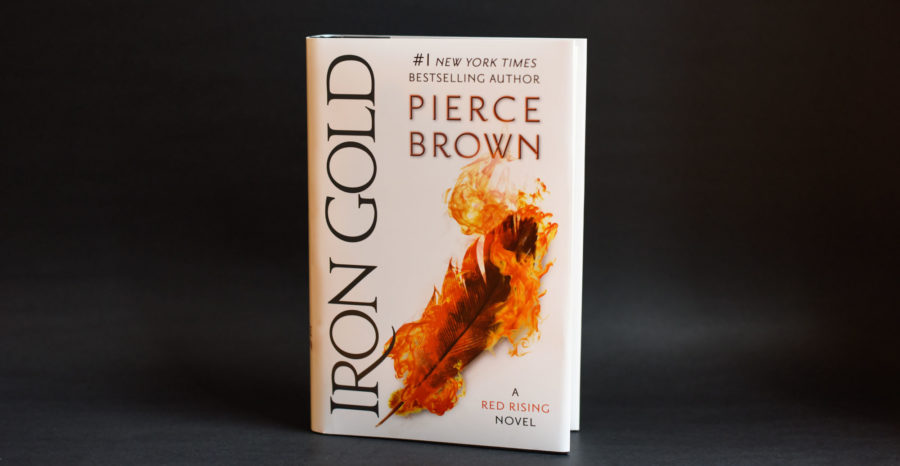
Only, he refuses to let it go until there is absolute peace. His family is abandoned for months and years at a time to finish a war that never ends, and peace seems impossible. But one can only wonder if a man literally forged by war can possibly know what peace looks like.
To put a twist on this first novel in a new trilogy but familiar world, Brown introduces three other point-of-view characters to show Darrow’s consequences from different angles.
There is a young Red girl, freshly liberated from enslavement down in the mines, only to live poorly in a refugee camp, waiting for the promised “better life” that never comes until it’s too late. A soldier-turned-thief struggling to overcome his grief caused by a loved one lost in Darrow’s war and to pull off the heist of the century.
Then finally, the familiar face of a young boy, now 20, who lives on the run since Darrow overthrew and murdered his family. “Iron Gold” uses these voices to weave a powerful narrative that shows the true consequences of starting a rebellion.
Of course, Darrow and his point-of-view counterparts aren’t the only character draw-ins in this epic beginning of a new trilogy. Nobody can forget about the original trilogy’s cast of fan favorites. Fans certainly adore Sevro, Darrow’s right hand man and founder of the Howlers, who has the foulest mouth of any character I’ve ever read. Strangely enough, that’s a part of his charm. For a Gold, most would call him the runt of the litter, hardly a warlord in the making, but Sevro gets a good laugh out of proving everyone wrong by kicking ass and staying alive.
Another fan favorite (and Darrow’s love interest) is Virginia, better known by the nickname Darrow gave her in the first novel, Mustang. She is a tactical genius, the voice of reason and a force to be reckoned with. Not a damsel by any means. She is an excellent example of a woman of power in this series, and never one to be underestimated. These two characters in particular are enough to draw fans back into the rabbit hole that is the world of “Red Rising” after Darrow’s rise to power.
I’ve always thought the “Red Rising” trilogy is extremely underrated. It’s a diamond in the rough of mainstream dystopian books, a hidden treasure. Brown brilliantly develops a cast of characters, each with their own voice and passions, and presents them in a fantastic world of epic proportions. Honestly, what is there not to love about the idea of Romans fighting in space?
Darrow can easily pass as a sci-fi dystopian Spartacus. Regardless, if you’re a fan of “Star Wars,” “The Hunger Games,” “Game of Thrones,” “Ender’s Game,” etc. — you will fall madly in love with the world of “Red Rising.”
“Iron Gold” is at its core a novel about the aftermath, about what it takes to rebuild after a rebellion. Darrow and his supporting cast are off to a rocky start — his Howler fans will be yelling, “Darrow, no!” quite a bit — but this new trilogy shows promise as a refreshing take on dystopian fiction.


